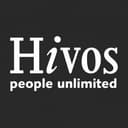Vertical Atlas
Vertical Atlas is a research project in five chapters, aimed at the creation of a new atlas to navigate the complex techno-geographies of the world today. The fourth edition: Futures.gcc, focusses on the Arab states of the Persian Gulf. These position themselves as competing digital, corporate service platforms and each brand themselves with their own futuristic architecture, megacities, investment opportunities and visions of artificial futures.
Over the past few years, the Gulf has given rise to a specific brand of futurism. Cities like Dubai, Abu Dhabi and Doha are not only racing to out-modernize one another but also to create their own specific version of the shape of things to come. The Gulf city states brand themselves with their own futuristic architecture, aesthetics, investment opportunities and special economic zones, and are increasingly morphing into competing digital, corporate service platforms for city-users from all over the planet.
Masdar City in Abu Dhabi has never been a dwelling site for the present, but was developed to be the hotbed of post-oil, sustainable futures. Having failed to accomplish this vision, it is now being rebranded by its parent company Mubadala for a different sustainable energy future by developing and supporting research projects around the world.
NEOM, a new, high concept paradisiacal city-state due to be built from scratch on the south coast of the Saudi peninsula, is the next step in this unique logic of city development. It is envisioned as a start-up the size of a country. In addition to future energy research it will focus on genetic research and the design of artificial ecologies, and will again house a population of global expat city-users.
In the meanwhile, the city-users of the present as well as the local inhabitants dwell indoors in their digitally rendered interiors to escape the intense heat, and engage in a version of public life almost exclusively in cyberspace, where distinctions in rights and access between these groups -as well as genders- are maintained with advanced biometrics and other technologies.
To promote their regional political interests, the city states are increasingly operating as weaponized cloud platforms. Human users and social media bots are engaged in (automated) technological and political clashes, as proxies of regional powers projecting different mutually exclusive versions of the future which are, for the foreseeable financial future, all dependent on the exploitation of oil fields.
Could oil money actually generate post-oil futures? Is any of the projected futures actually intended to ever become a lived-in present? Or should this dynamics better be seen as a competition between different petrol-aesthetic brands also engaging in online battlefields to fight each other for control over their narratives?
Marc Owen Jones will speak about technological culture of the Gulf region as it was shaped by different historical forces like the british colonial empire, the royal houses of the region and the particular kinds of states they formed, and the impact of the climate on the notion of public space. Amal Khalaf will speak about the central role of visualized futures in the politics and culture of the Gulf region and the way these futures tend to obscure the present.
Speakers
Marc Owen Jones
Marc Owen Jones is Assistant Professor in Middle East Studies and Digital Humanities at Hamid bin Khalifa University where his research focuses on issues of social justice, technology and the Gulf. Marc Owen Jones has written about issues of political repression, and the use of digital technology as a form of political control. He is the co-editor of Gulfization of the Arab World (2018) and Bahrain's Uprising: Resistance and Repression in the Gulf (2015). In addition to his academic work, he contributes to the Washington Post, New Statesman, CNN, the Independent, PEN International, and appears frequently on the BBC, Channel 4 News, and Al Jazeera.
Amal Khalaf
Amal Khalaf is a curator and artist and currently Director of Programmes at Cubitt Gallery, London and Projects Curator at the Serpentine Galleries, London. Here and in other contexts she has commissioned and developed residencies, exhibitions, workshops and collaborative research projects that address the role of art operating within pedagogy and social urgencies. She is a founding member of artist collective GCC, was the Commissioning Editor of Projects for Ibraaz, as well as a trustee for not/no.w.here and on the artistic committee for Arts Catalyst. In 2016 she co-directed the 10th edition of the Global Art Forum, Art Dubai. Amongst others in educational and cultural contexts, Khalaf's work has been presented at Goldsmiths College in London, MoMA PS1 in New York, New Museum in New York, Whitney Museum of American Art in New York, Mathaf: Arab Museum of Modern Art in Doha, Musee D'Art Moderne in Paris, The Sharjah Art Foundation in Sharjah and Serralves, Porto.
This project was made possible thanks to:
 Hivos
Hivos